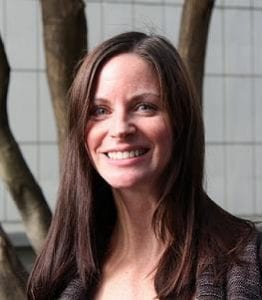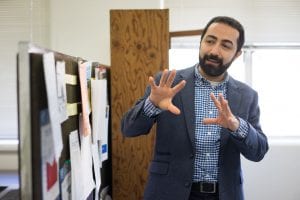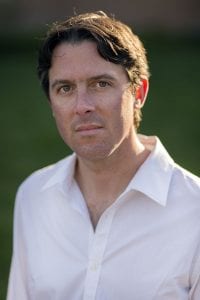Professor Asha Weinstein Agrawal, Department of Urban and Regional Planning, was guest speaker at the Leonard Transportation Center’s November Dialogue Series in San Bernardino. Along with other panelists, she discussed the future of transportation funding in the state of California. Agrawal also directs Mineta Transportation Institute’s National Transportation Finance Center.
Professor Anuradha Basu, Department of Global Innovation and Leadership, took part in an October symposium, “Social Networks in a Transnational World: Chinese and Indian Entrepreneurs in the United States,” held at UCLA’s Asia Pacific Center.
Former SJSU Associate Professor Natalie Batalha, Department of Physics and Astronomy, joined UCSC’s Department of Astronomy and Astrophysics this fall. Named one of Time magazine’s “100 Most Influential People in the World” in 2017 for her work at NASA on the Kepler Mission, Batalha received her doctorate in astrophysics from UCSC and received that university’s Alumni Achievement Award in October.
Former SJSU Department of Educational Leadership Lecturer Kristyn Klei Borrero published Every Student, Every Day: A No-Nonsense Nurturer Approach to Reaching All Learners (Solution Tree Press) last month. Superintendent of Jackson (Miss.) Schools Errick L. Greene described the book as “a powerful road map for educators to build strong, productive relationships with students and their families.” Borrero currently serves as CEO of San Francisco-based CT3, a teacher training organization.
NBCBayArea.com interviewed Associate Professor Craig Clements, Department of Meteorology and Climate Science, about PG&E’s decision to shut off electricity to reduce life and property loss when weather conditions create severe fire hazards. Read more at: https://www.nbcbayarea.com/multimedia/Cutting-Power-Before-Wildfires-Can-Save-Lives-But-PGE-Says-Its-Complicated-495999451.html
Rewirenews.com interviewed Associate Professor Rachel French, Department of Biological Sciences, about President Donald Trump’s memo erasing legal protections for the transgender population. French was one of more than 1,600 scientists who signed an open letter of protest, stating that Trump’s claims were not “grounded in science.” Read more at: https://rewire.news/article/2018/11/02/scientists-blast-trumps-absurd-anti-trans-memo/
Associate Professor Nidhi Mahendra, Department of Communicative Disorders and Sciences, was one of five palliative care researchers who received funding from the Gary and Mary West Foundation last month. Mahendra’s project, “Investigating Communicative Access in Advance Directive Planning for Persons with Aphasia,” received a $10,000 grant.
ABC7news.com interviewed Professor Scott Myers-Lipton, Department of Sociology, about the city of San Jose’s new pilot program to employ the homeless. “We need these types of programs,” Myers-Lipton said. “Public work for people who don’t have jobs that pay a living wage.” The program will start by employing 25 participants at $15 per hour to clean trash off the streets. Read more at: https://abc7news.com/society/sj-launches-pilot-program-to-employ-the-homeless-/4556787/
TBW Books published former SJSU Department of Art and Art History Lecturer Mimi Plumb’s collection of photographs, Landfall, this month. Plumb signed copies of the volume, featuring images of California in the 1980s, at Paris Photo, the world’s largest international photography art fair, held at the Grand Palais des Champs-Élysées each November.
Wellandgood.com interviewed Lecturer Mary Poffenroth, Department of Biological Sciences, regarding the mental health advantages of watching “spooky” movies. “The horror genre gives us a safe space to express our fears, to talk about our fears, to say ‘I was scared!’ without having…to say you are a fearful person,” Poffenroth explained. Read more at: https://www.wellandgood.com/good-advice/why-do-people-like-horror-movies-mental-health/
The San Jose Mercury News interviewed Interim Associate Dean Meghna Virick, College of Business, about the walkout of thousands of Google employees over the company’s handling of sexual misconduct in the workplace. “The landscape has changed,” Virick said. “Companies have to come to the realization that you can no longer assume that you can keep things under wraps.” The protests followed revelations of a $90-million golden parachute payout to Andy Rubin, who resigned because of sexual misconduct allegations. Read more at: https://www.mercurynews.com/2018/11/01/google-employees-walk-out-over-handling-of-sexual-harassment/




